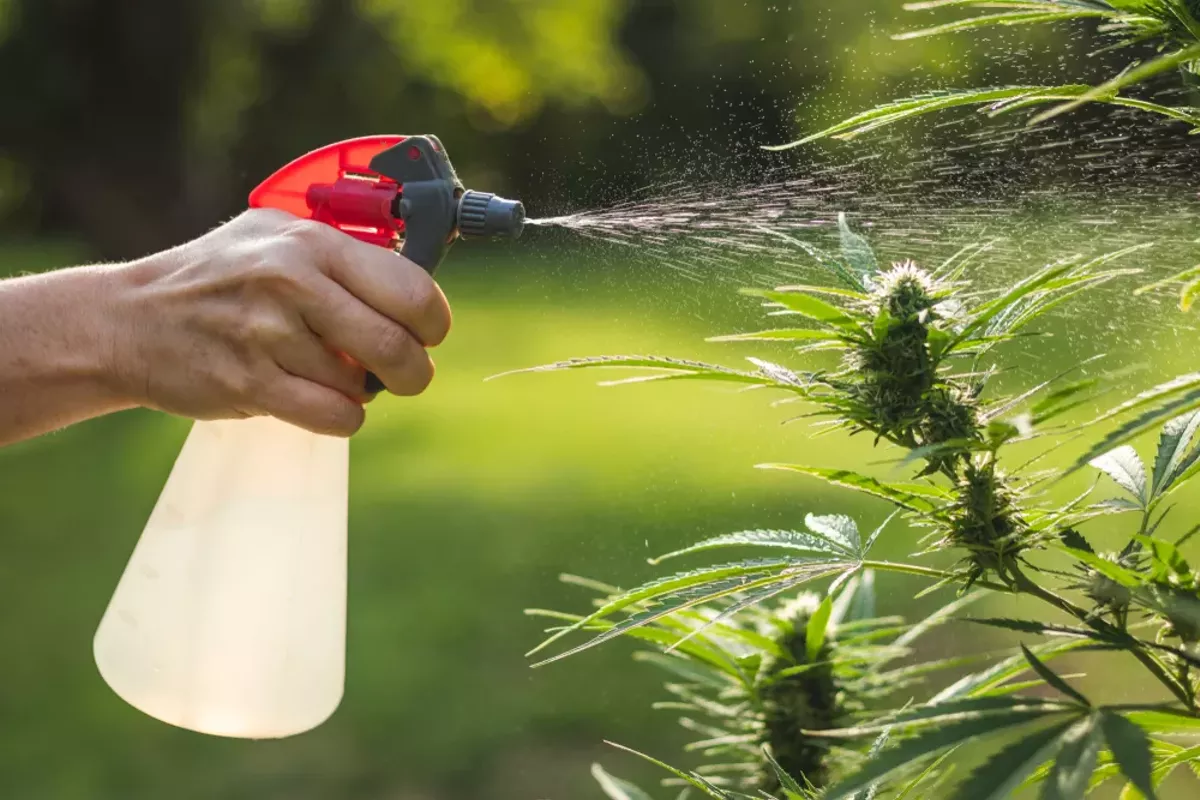Homegrown marijuana was once a derided substance. It only got you a little bit high, and it tasted awful. Marijuana from anywhere else — Mexico, Jamaica, Colombia, Hawaii, Thailand — was preferred to a domestic product.
It's a good thing those growers kept at it in their basements and attics, despite the derision of their friends. They figured out enough about plant genetics to flip the switch and make the domestic product the preferred bud. Some of those growers became caregivers, which became the backbone of the medical marijuana production and distribution system when the state chose not to do anything.
Now they are in the crosshairs of a legal marijuana system that wants to cut them out of the picture. Last week an unnamed Michigan group that includes Banks & Company, the Michigan Economic Stimulus Fund, and Minorities for Medical Marijuana announced the Commercial Cannabis Craft Act, which according to a press release is "a simple solution to fix licensing access and other complex Medical Marijuana issues."
The process of getting legislators on board to introduce this legislation and then getting enough of them to change some of the existing laws is both complex and daunting. What's questionable is why they're introducing this now, just as Gov. Gretchen Whitmer is revamping the medical marijuana licensing and oversight system, and setting up a complementary adult-use system. Part of the governor's process involves gathering public input. The Craft Act folks could certainly lend their efforts to that process.
I called the wrong people about this last week, so I can't tell you what they're thinking. I have seen the work-in-progress language of the act, and it calls for eliminating the caregiver system and banning gifting — so you can't even give it away. It's all couched in the language of fixing the current system, but it is very favorable to businesses that are already operating.
A lot of the same points made in the Craft Act press release are also made pretty boldly in a policy statement a New York marijuana industry group sent to Gov. Andrew Cuomo as he formulates a recreational marijuana system. That policy statement is a vicious attack on home grow provisions, claiming that "home grow will make it impossible to eliminate the black market."
The gang that wants to move the black market to the stock market considers that a big issue. The Craft Act folks address this in their press release by claiming that, because of caregivers, "there's potential for illegal marijuana to get into the [black] market."
This is really ironic. All marijuana was illegal for a long time, and now folks are working at differentiating between legal marijuana and illegal marijuana. It's suggestive of an old argument against hemp legalization — because police wouldn't be able to tell the difference between hemp plants and marijuana plants. The recent New York policy statement echoes that in claiming that "home grow will make it impossible for law enforcement to distinguish between legal and illegal products" — again casting doubt on the deductive skills of police officers.
So we still have to quibble about where the illegal marijuana is so law enforcement still has some reason to chase marijuana sellers around. This is the time to protect the interests of those who are legally licensed to sell marijuana. This may get even weirder before it all shakes out.
Another aspect to this legal vs. illegal marijuana is the assurance that the licensed outlet is selling safe, clean, tested, and state-compliant marijuana. The Craft Act group, and pretty much everyone else selling marijuana products, want to assure people that their marijuana products are safe and all that — not like that nasty black market stuff that could be laced with all sorts of things. This is a good thing, particularly when it comes to medical product. However, at this point the recreational users just don't care. They've been using untested marijuana since forever. Ever since the paraquat herbicide scare, and every other scare over the years, marijuana users have continued to use the stuff.
That's not to mean that growers who use unscrupulous methods and sell poisonous crap don't need to be eliminated. They do. But a lot of medical and recreational users know and trust their growers. They know and trust the products they've been getting. Not only that, the stores have not been able to maintain a sure supply of anything so far. It's going to take a long time for the legalized market to capture the trust of marijuana users. Medical users have had the issue of provisioning centers not being a source where what you need is always available. Gaining integrity in this area will take some doing.
It won't help the legal market if the public perception is that money-grabbing big businesses are trying to lock up the market for themselves at the expense of the small-timers. The market will get bigger when the recreational market opens. Folks who have sunk their money and hopes and dreams of getting rich want to see some return. They see an opportunity for a big influx of cash if the recreational market were opened to them as quickly as possible. They are tempted by the people who ask if they can buy recreational marijuana at their stores.
In the long run, the caregiver system cannot compete with a robust legal market. The number of licensed caregivers in the state is governed by the amount of patients. Right now there are fewer than 300,000 patients in the state, and not all of them have caregivers. The Michigan market for recreational marijuana is somewhere around 2 million if national averages apply here. The amount of caregivers for, who knows, 100,000 patients, can't do that much in a market for 2 million even if they do "accidentally" grow a little too much.
The people who grow for their own use are like the folks who brew their own beer or make their own wine. They may do a little "gifting" here and there, but they still go out and have a few at the bar or with dinner. And they certainly aren't competing with the marketplace.
It's clear that the medical marijuana system and the recently passed Prop. 1 legalizing adult recreational use of marijuana have not had a chance to thrive as written. The marijuana activist community now has the ears of the governor and the attorney general. That was clear from AG Dana Nessel last week when she said she credits the marijuana crowd for putting her in office.
This Craft Act maneuver seems an end run designed to bypass the governor's initiative and lock out some players to the advantage of others. This won't be the last we see of that kind of action. It's also not the end of homegrown marijuana — a category of herb that still maintains its place at the center of dispute.
Stay on top of Detroit news and views. Sign up for our weekly issue newsletter delivered each Wednesday.








